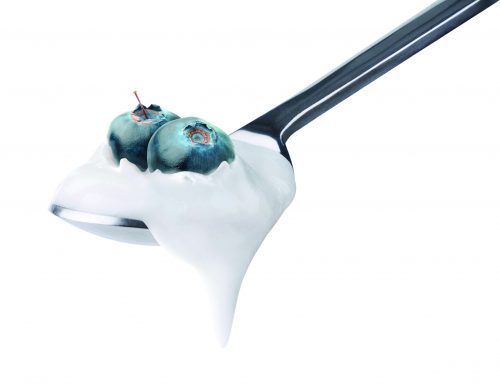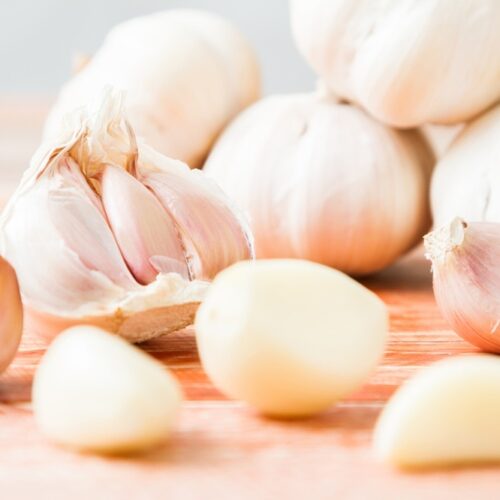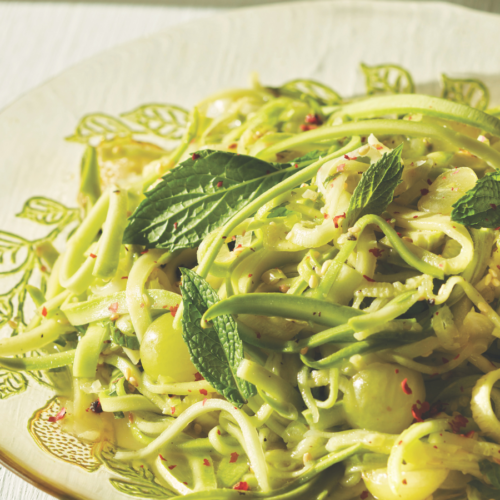
Many people underestimate just how vital good digestive health is to our overall well-being, and often only pay attention when something goes wrong.
Nutritionist Bobbie Crothers has five golden rules to make taking care of your digestive health easy.
Taking care of our digestive health is crucial. We can help minimise the risk of developing serious diseases, such as bowel cancer, as well as help to avoid stomach pain and bloating and enhance our general well-being.
Unfortunately, it’s not until our digestive system gives us grief — we find it difficult to go to the toilet, experience excessive bloating, abdominal pain, heartburn, a bout of diarrhoea, or worse — that we find ourselves at the doctor’s.
Looking after our digestive health, however, is as simple as observing these following five rules.
The digestion system
- Stomach: The first stop after the oesophagus. The stomach muscles churn food and acids help to break food down before it moves into the small intestine.
- Bowel: The bowel includes the small intestine, the large intestine and the rectum.
- Small intestine: Food continues to break down and nutrients are absorbed into the blood. Fluid and fibre pass through to the large intestine.
- Large intestine: Consists of the colon and the rectum. The colon is where the breakdown of fibre and reabsorption of water occur, and where waste is stored until it is transported out of the body via the rectum and then the anus.
- Rectum: See Large intestine.
- Anus: Anus: Where waste exits the body.
1. Eat a variety of high-fibre foods
Dietary fibre is a must when it comes to taking care of our insides. Many of us are still not getting enough total fibre, or we are not getting enough of the different types.
Different types of fibre do different things, and the different types are more effective in combination than individually when it comes to promoting digestive health. This makes it important to not only boost your total fibre intake but to get a mix of different types of fibre in your diet.
Different types of fibre
- Soluble fibre: This type of fibre slows the time it takes food to pass through the stomach and small intestine (see diagram, left), which helps with the absorption of nutrients. Soluble fibre is found in oats, barley, psyllium, fruits with the skin on, vegetables, legumes and fibre supplements such as Metamucil or Benefiber.
- Insoluble fibre: This type of fibre speeds up the time it takes for waste to move through the large intestine, which helps to produce larger, softer stools, increases the number of trips to the toilet and reduces the time toxins stay in the bowel. Insoluble fibre is found in wheat-based cereals, (especially those with wheat bran), pasta and quinoa.
- Resistant starch: Fermented by good bacteria in the large intestine, resistant starch produces short-chain fatty acids (a type of fat) that are important for the health of cells in the bowel. Resistant starch is found in legumes, firm bananas, and cold, cooked pasta and potatoes.
There are currently no specific guidelines on what the right mix of fibre is, so try to eat a variety of the foods listed with the different types of fibre. Ensure you get enough total fibre in your diet: men should aim for 30-38g per day, and women, 25-28g.
2. Rebalance with probiotics (good bacteria)
There are around 10 times as many bacteria in the large intestine as there are cells in our bodies. That’s a lot when you consider our bodies are made up of more than 10 trillion cells.
While the role and the benefits of these bacteria are not entirely understood, we do know that having the right balance of good bacteria in our digestive system is important for digestive health.
What good bacteria do
- Ferment or break down fibre in the bowel to produce nutrients for the cells that line the bowel, which helps keep the lining of the bowel healthy.
- Keep the correct pH balance (acidity to alkalinity) in the large intestine, making it an environment that’s beneficial for intestinal cells and maintaining the balance of good and bad bacteria.
- Contribute to stool weight, which helps to make our stools bulkier and easier to pass.
- Crowd out any nasty bacteria that enter the digestive tract, preventing them from multiplying and making us sick.
Tip the balance towards good bacteria
- Ensure your diet is high in dietary fibre (especially resistant starch) as it promotes their growth.
- Include foods in your diet that contain these good bacteria, also known as probiotics: Probiotics are most commonly found in yoghurt and probiotic drinks. There are also probiotic supplements, but you get added nutrients such as calcium, protein and B vitamins (to name a few) when you choose a probiotic yoghurt. If, however, you have recently taken antibiotics (which can kill off the good as well as the bad bacteria when we’re sick) or had a bout of diarrhoea, probiotic supplements can be a good addition to your diet.
3. Don’t skip carbs or breakfast
Some people reduce their carbohydrate intake as part of a weight-loss diet. But we do need some grain-based foods and the fibre they contain, as these play a key role in keeping our digestive health on track.
Others may decide to cut wheat from their diet in the hope of gaining relief from their digestive problems. However, unless you have been diagnosed with coeliac disease or an intolerance, banning wheat from your diet isn’t recommended without consulting a doctor or dietitian. Wheat, and in particular wheat bran, is high in insoluble fibre (see above). Eliminating wheat from your diet limits grain-based foods and makes it harder to get the fibre you need.
The same is true when it comes to avoiding high-carbohydrate foods at breakfast. A lot of people skip breakfast when it is the perfect opportunity to boost fibre intake. If you don’t have a good source of fibre at breakfast, it’s hard to reach the suggested daily fibre intake through your other meals.
A bowl of your favourite high-fibre cereal with trim milk and yoghurt, or a couple of slices of wholegrain or rye bread as part of your breakfast will give you a head-start on your fibre needs.
4. Get enough fluids
Drinking plenty of water and staying hydrated helps maintain digestive health. During digestion up to 10 litres of fluid enter the digestive system: two litres from eaten foods, two litres from stomach juices and another four to five litres from the liver, biliary system (gallbladder and bile ducts), pancreas and secretions from the small intestine. While most of this fluid is reabsorbed into the body, it shows how important fluids are for healthy gut function.
The exact amount of fluids needed depends on individual body size (both height and weight), the temperature and how active we are. A rough guide is around eight glasses of water a day. Try to drink enough so that your urine is very pale yellow or almost colourless, except for first thing in the morning when it’s usually a darker-yellow colour.
The fibre in your diet also absorbs water during digestion so as you increase the amount of fibre you eat, make sure you are getting enough fluids too. Along with plain water, you can also count other fluids such as tea and coffee as part of your daily fluid intake but water is best.
5. Look at the bigger picture
It’s no secret that diet and lifestyle habits affect general health and well-being but some factors also affect digestive health. Smoking, alcohol, caffeine, high-fat foods and even stress can all have a negative impact on the digestive system.
Research also shows having a higher body mass index (BMI) is linked with digestive health issues such as abdominal pain and bloating. On the other hand, studies have shown being active and eating plenty of vegetables, fruit and other high-fibre foods is linked to fewer digestive health issues.
Identifying whether any of these following factors may be a problem for you could also help you to better manage your own digestive health.
- Caffeine: Many of us experience a predictable trip to the toilet after our morning coffee. This is because caffeine is a stimulant. While coffee may be great for perking us up, it can, however, have a stimulant effect on the bowel, causing digestive discomfort and loose stools. Monitor how much caffeine you consume. If you find coffee upsets your system, try herbal tea or decaf.
- Smoking: Smoking also acts as a stimulant, which can cause muscle contractions in the wall of the bowel, leading to loose stools or diarrhoea.
- Alcohol: Alcohol acts as an irritant in the gut. Even a small amount can cause changes in bowel habits and the consistency of stools.
- Stress: Ongoing stress can cause symptoms such as diarrhoea and nausea.
- High-fat foods: Foods high in fat can also impact the digestive system. Fat may have an impact on muscular activity of the bowel and can cause pain and bloating.
Five foods for digestive health*
- Firm bananas: High in resistant starch
- Chickpeas, lentils or beans: High in soluble fibre and resistant starch
- Oats: High in soluble fibre
- Cold cooked potatoes: High in resistant starch
- Yakult Light: Contains probiotics
*These are just a few specific foods. Remember to include plenty of vegetables and fruit and high-fibre grain-based foods in your diet every day.
Five warning signs that things are not right, and it’s time to see your doctor:
- If you see blood in your poo or on the toilet paper.
- Diarrhoea that lasts for longer than 48 hours or is accompanied by other symptoms such as severe stomach pain, fever, vomiting or nausea.
- Severe and sudden constipation.
- Nausea that lasts more than 24 hours and/or is accompanied by severe vomiting.
- Recurring and persistent reflux.
Fast fact: On average, women get around 71 per cent of the recommended daily intake (RDI) for fibre and men around 76 per cent.
www.healthyfood.com











